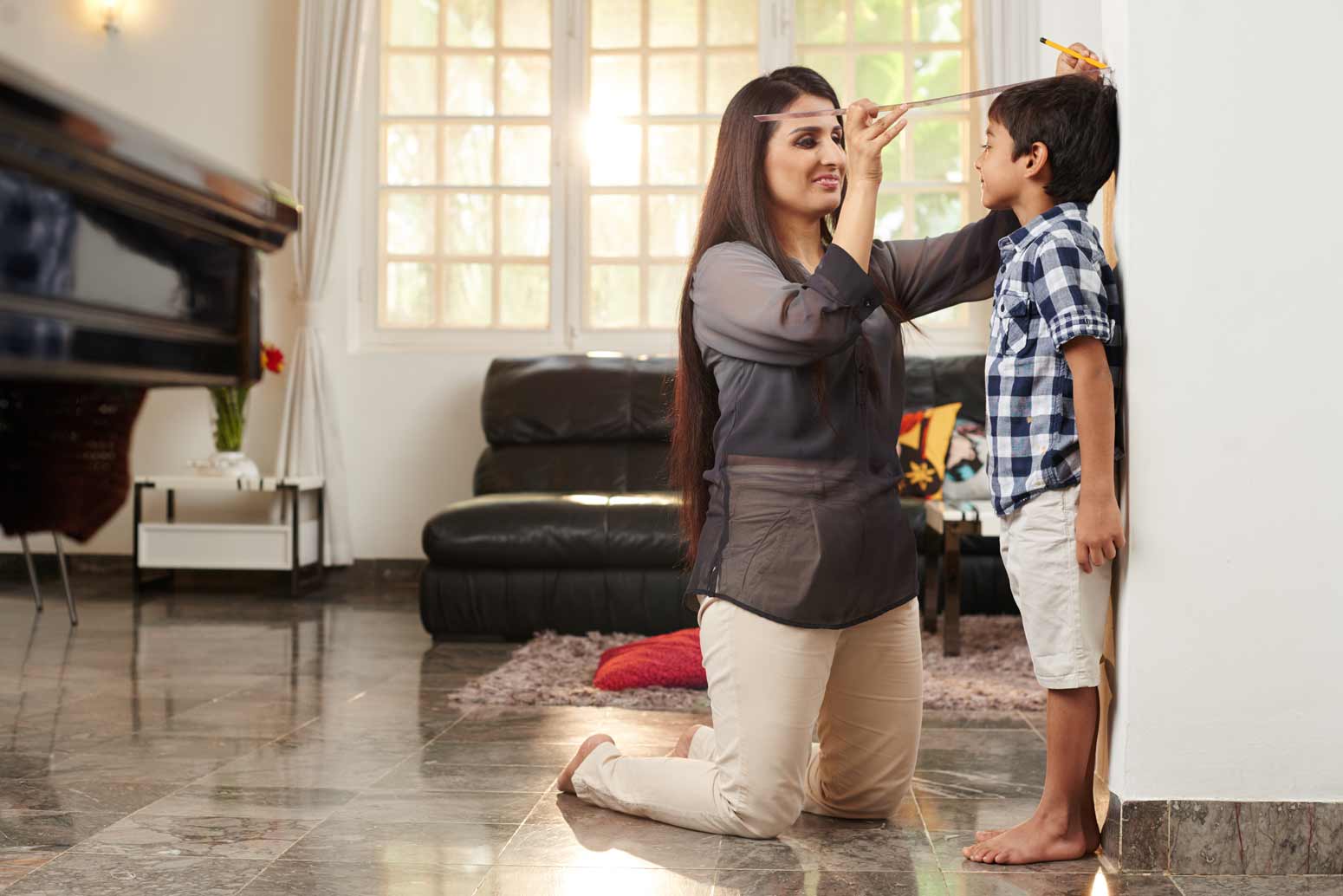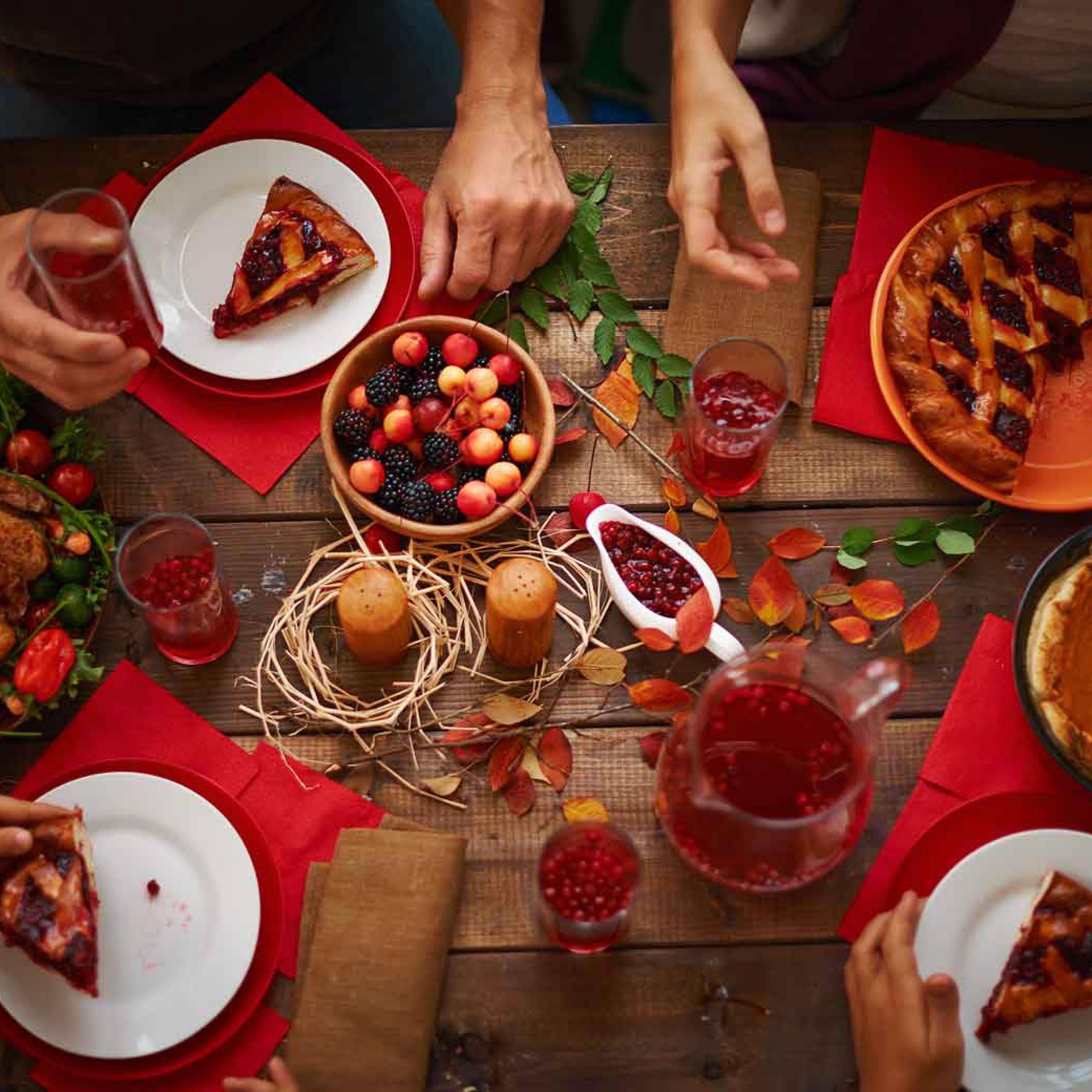It happened again.
I sat down at the Thanksgiving table. A table ringed with these gifts: a husband, our children, their wives, and their children. They are my motives. They are why I schemed and shopped and cooked and baked (a chocolate-iced zebra birthday cake the shape of Africa … you know, the shape of above-and-beyond love). They are why I hauled it all from our house, along with flowers and wine and pretty little napkins.
Today, at the table with this loud, fun family of ours, is the prequel to the next celebration, the one that means exponentially more cooking and baking and hauling and shopping and scheming. Today is the tugboat for that freighter called Christmas that sails into our lives the very next day after Thanksgiving.
I sat down and I became her, the archetype of all archetypes: Martha.

Is the phrase “put upon” only indigenous to Southern women? I should know, having spoken from that lexicon my whole life. If you placed a name on it, it would have to be Martha. Which really isn’t fair to Martha. She didn’t choose a bad thing by cooking and baking and hauling and serving. She just neglected the best thing, and anger spilled in to displace the neglected thing. “Put upon” means I’m doing everything and you’re doing nothing. Martha forgot how false this is. Unfortunately for her, someone overheard her say “Lord, doesn’t it seem unfair to you that my sister sits here while I do all the work?” (Luke 10:40) and recorded her words for all antiquity.
I felt put upon and my husband heard it in my voice. He looked up and saw it in my face. He gave me a “what’s the matter with you?” look. He overheard my heart being Martha in her worst moment.
Suddenly, this feast I’d put on made me feel put upon.
You see I know there is a best thing. I know it even while I am baking and cooking and serving. But I forget.
Lately I’ve been praying the way you run from a monster in a dream, wanting to get away from my own tendency to feel put upon when I am tired and overwhelmed. I dread it like that. I hate it. I am literally terrified of it and of myself when I succumb to it. So I’ve been praying it will stay away this Christmas, no matter how tired or overwhelmed I get. That, even when chaos rules in our calendars and our living room, I will not go there.
Then I realized—I’ve been praying all wrong. I do not have, nor will I ever have on this side of heaven, a perfect heart. It’s not a goal I can achieve. What I need is a pure heart. A perfect heart holds it all together and never breaks a sweat, never misspeaks, never gets irritated or angry. A pure heart is soft enough to admit these things and ask forgiveness for them. A perfect heart gets it done with so much ease that people are amazed. A pure heart stops to say, as our son did yesterday, “Can we stop and thank God for this, because it was all him. We don’t have to close our eyes, let’s just tell him how great he is.” We did it while we were holding a baby, packing a suitcase, and folding the laundry.
A perfect heart is calculated righteousness. A pure heart is impromptu grace; one science, the other art.
So there I sat in my “put upon” moment until my husband’s glance stopped me. I looked over in the corner of our son’s dining room. There, sound asleep and delightful just by virtue of being, was our two-day-old grandson. His five-month-old cousin sat next to him, wide-awake and delightful just by virtue of being. Pure.
I’d done some good things that day, but for a moment I forgot the best thing. I forgot to be pure, like my grandchildren.
A pure heart is soft enough to admit these things and ask forgiveness for them.
Not only is it never true that I do everything and everyone else does nothing, with God, the exact opposite is true. If there is an equation, it goes something like this: God does everything and I do nothing. First here I am, as helpless as a baby to do anything for God, unable to cook or clean or bake for him, because he is sufficient unto himself. He delights in me because I am his in the same way I delight in my children because they are mine. Of course I love it when they respond to my love, but I would love them even if they never did.
Then, as if God wanted to make sure his children really, really understood the nature of his love, there was this baby who slept and awakened upon a bed of straw. He was delightfully the “exact representation” of the Divine in human flesh, a picture of pure.
And this baby, who was with God when the earth was nothing, who is with God now, having grown to manhood, bled and died with divine love for us in his human heart, who defied death and lives today, lives inside my heart.
A few days after Thanksgiving I was driving on 285 at dawn, asking God to make me pure. Banjos played and Sufjan Stephens sang the second most familiar hymn in Christendom. In a lullaby sung straight to my heart, the miracle-hope of the gospel sneaked up on me to say that my heart is fettered to him, not by my perfect efforts, but by the strength of his goodness:
O to grace how great a debtor
daily I’m constrained to be!
Let thy goodness, like a fetter,
bind my wandering heart to thee.
Prone to wander, Lord, I feel it,
prone to leave the God I love;
here’s my heart, O take and seal it,
seal it for thy courts above.
I will probably still be a Martha, maybe even a little more often between now and about December 27, because I am prone to wander. But my heart is sealed up with a manger inside, and I am headed from this comforting place of purity … where it’s okay to ask forgiveness for the same thing more than once, to a place of perfection there where my Savior, grown and complete, awaits.
There will be a feast there, too, one that I hope ours here are reflections of, except I will not cook or bake or haul or shop for this feast. I will simply sit and eat, delighting and being delighted in.
—
Read about what Kitti Murray is up to in her article The Refuge Coffee Co. Story: Hope and Help in a Cup
You’ll also like Building Faith: Growing in Your Relationship with God, When Bearing Their Burden Breaks You, Overcoming Bitterness When You Don’t Get the Credit You Deserve, You’re a Piece of Work, but There’s Grace for You and What To Do When You Become Invisible.
#gritandgracelife













